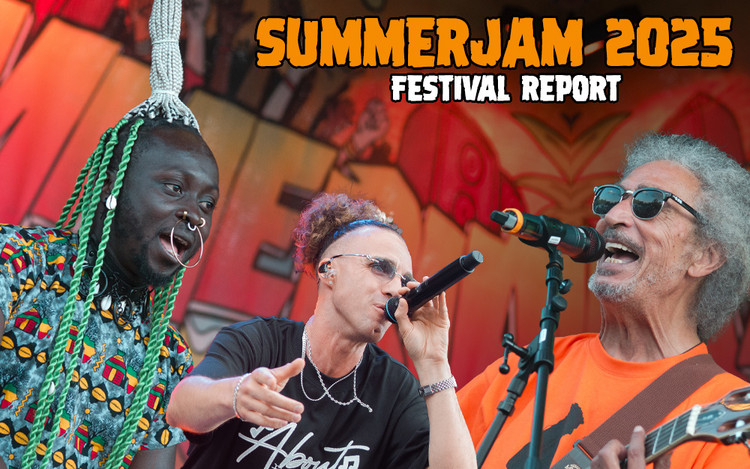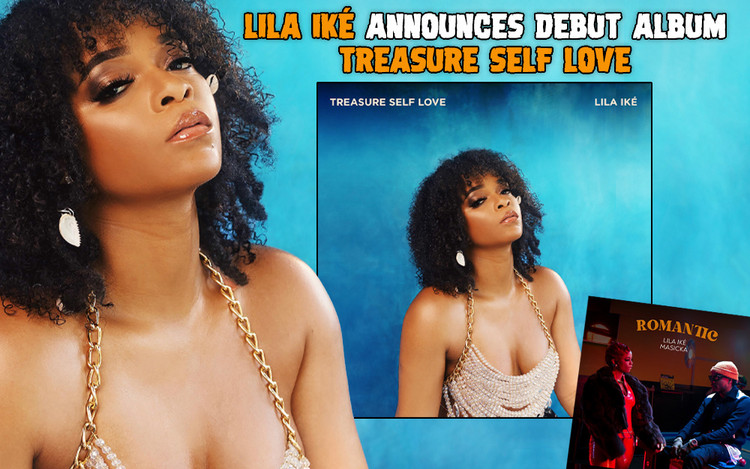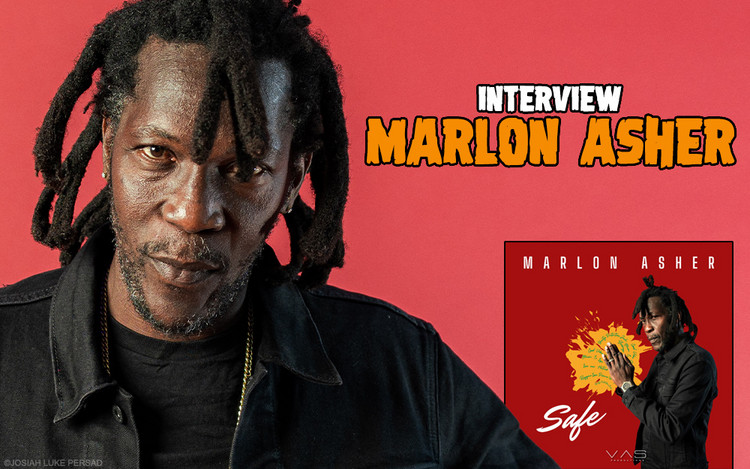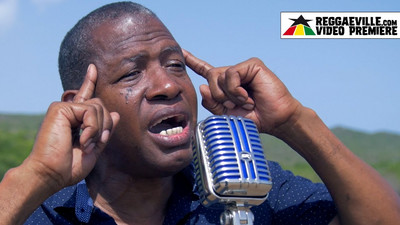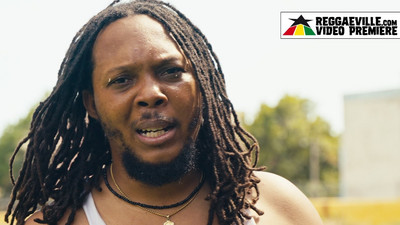Blvk H3ro ADD
Blvk H3ro On A Mission - The Interview
08/28/2023 by Steve Topple
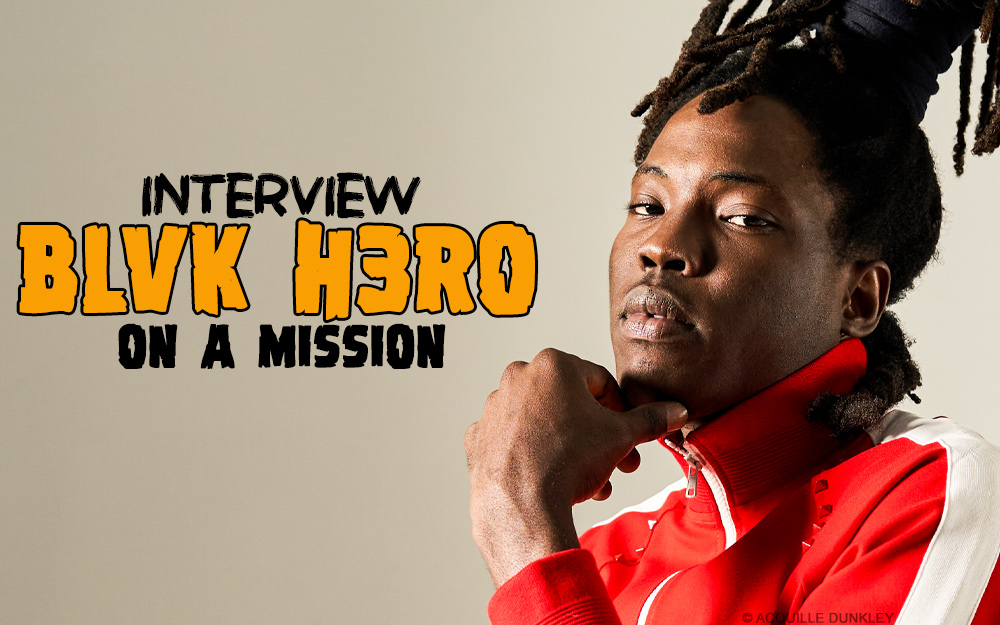
Jamaican-born artist Blvk H3ro has just released his new album, On a Mission – and it’s cemented him as one of the most exciting artists to emerge from the island in recent years. A melting-pot of Dancehall fused with numerous other sounds and genres, it’s inventive, creative, and pushed the boundaries of modern music – seeing H3ro swerve from Afrobeats, to Neo Soul, via Afro Swing – all while making sure Dancehall is still represented.
So, Reggaeville caught up with him, to discuss the album, the creative process, why he left Jamaica, and the small matter of a Grammy nomination for the single Neva Bow Down with Rocky Dawuni in the "Best Global Music Performance" category.
You’ve had a mad few days with the album release!
It’s crazy. I’m trying to stay calm but it’s still going...! It just feels good.
Since we last chatted in 2019, you’ve had a busy few years: collabs with UB40, Bunny Wailer, the Jamaican PM praised you, and the small matter of a Grammy nomination. It’s been mad for you, no?
It has. And it’s only at this point, looking back - in those moments when it was actually happening, I was a bit - but now I can see how it’s come together. But it’s been mad. Immortal Steppa was like a demo; putting out Dancehall’s first collaborative EP with Wayne J, that was a step, plus a lot of singles. But each year seems like a natural progression. I’ve kept my head down, and kept putting out music, and performed where I can. When I look back, it’s all been set up for this moment. Even with Immortal Steppa coming out – I know it was received well by some, but the industry – they didn’t support it. The energy kind of faded after that album, I’m not gonna lie. But I learned from that, and created this project, now. All these things led to this album.
Well, I thought Immortal Steppa was brilliant! The Grammy. That must have been strange, as – let’s be real – it’s quite a capitalist event! But it’s undeniable it’s a pinnacle, and plus what it can do for you to be able to say ‘Grammy-nominated’. How was that for you?
It was different. I already viewed it as a music capitalistic thing – but I’m still a kid, too. The Grammys have been around since before I was born– it’s etched in human history. It’s something. But going there, as a kid with the experiences I’ve had – I couldn’t see it as being as capitalistic. For once I just didn’t feel it. On TV we demonise it – celebrities, you know, Beyoncé blah blah – but she’s a normal person, y’know? It just made me humanise it. These people are just as sad, excited. And it’s still a family, a community, regardless of the accolades. And I could see beyond the TV and get my own perspective – and for the most part, these people are here to show love for each other.
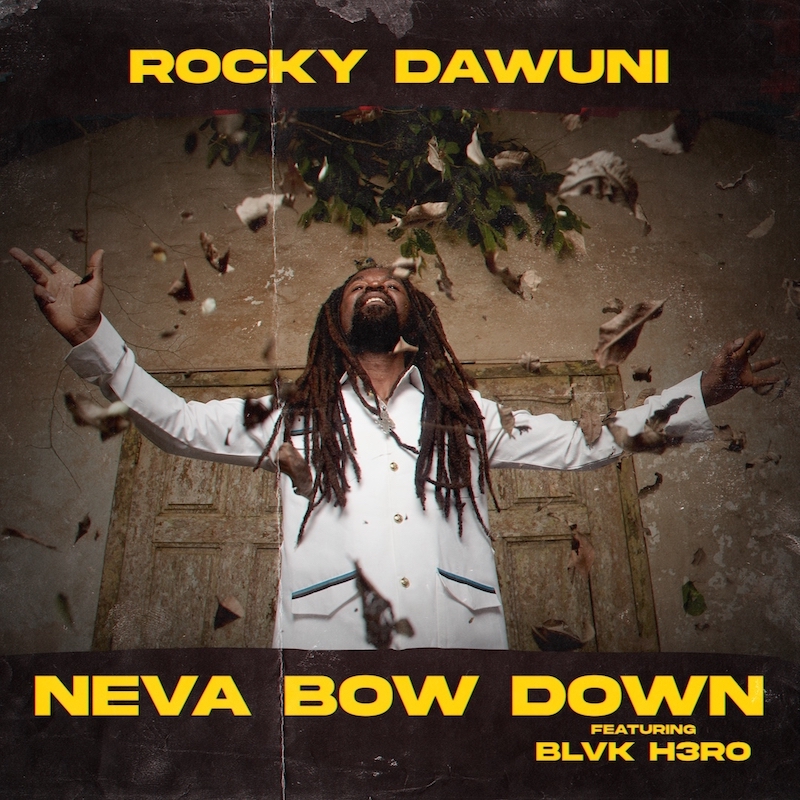
It was a powerful moment. And I wasn’t there alone – Kabaka, Protoje, Shaggy, Koffee, a lot of African producers I know. I learned a lot – and there was a lot of African identity there, too.
Do you think Black representation has improved, then?
Of course. The new head that they have – he’s a Black dude. Most of the heads of the committees are Black. That moment when Macklemore won the Rap Grammy over Kendrick Lamaar? When SOJA won the Reggae Grammy? They did deserve it, it wasn’t bad – but still, everything kind of shifted with the reaction of the people to the Grammys, and they then started to get it right. I think they’re learning – the more generations come in, the more will phase out. That’s not just Grammys. I’ve got sistas In Iran refusing to wear the Hijab – fighting just not to wear it. These chicks don’t want to wear it, and they’re fighting for their lives right now. It will take time, but things will change up.
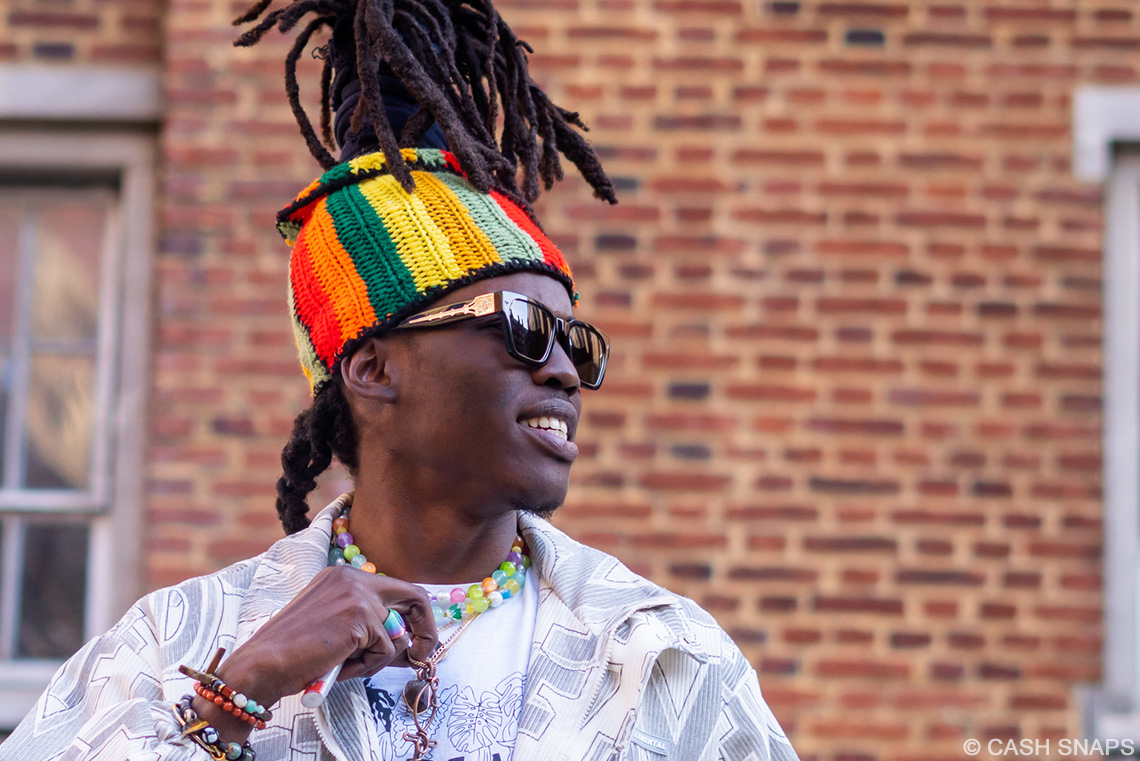
We did this before – talking politics and social issues – but we’ll end up doing it for hours! OK, so On a Mission, the new album, is phenomenal. You’ve taken the eclecticism of Immortal Steppa, but this time the diversity feels more organised. How long have you been working on this?
Right after I made the EP with Wayne J, I started working on it. Young Boss with Skillibeng was supposed to be on this album – that’s how long ago it was, 2020. I say three years - but really it was two to fully craft it together.
That’s still quite a long time nowadays.
Yes, nowadays – not historically, though. It is in this microwave timeframe of things, when things move fast. But I wrote Drive for my ex-girlfriend for her birthday as a gift, six years ago. You can sense when a song is timeless, though – it’s a good test.
I’m just so glad of the reception. I was so nervous – as there’s real forward-thinking tracks on it: Drive is Jazz-RnB cut; Crazy World is Dancehall-Soul vibe; Arguments is a Dancehall-RnB cut. I love Dancehall’s ability to fuse. I love Reggae, but I always knew in my heart Dancehall’s where it’s at. When Bob Marley was alive, the stars of that time visited HIM. It wasn’t the other way round; the stars came to him. Now, the stars of this time are linking with Dancehall artists. So, Reggae is the grandfather, but Dancehall is now the father.
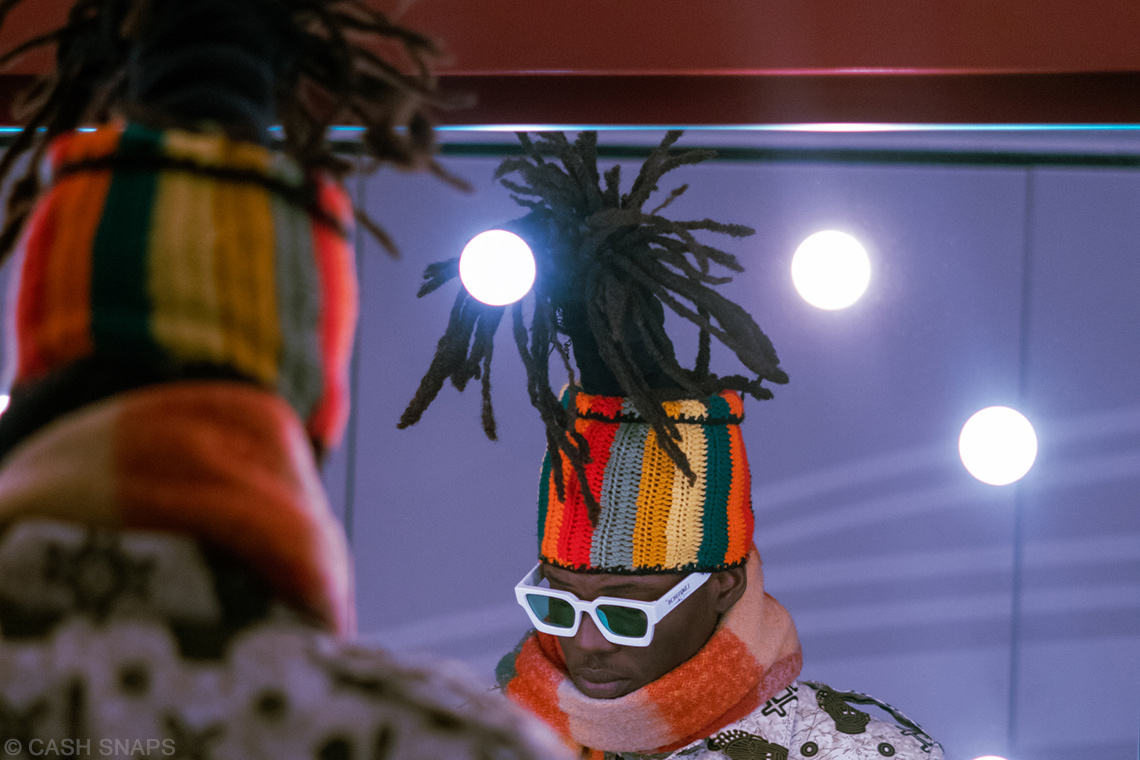
Neo Dancehall is the perfect way to sum it up.
It’s in the US, UK, you hear it in Reggaeton. The whole world has become one big ‘dance hall’ - a space where all these types of music live. Now is a great time for Dancehall artists. Burna Boy has made our jobs so much easier – because he wants to do Jamaican music, and I want to do African. That means we now have an Afro-Caribbean space.
So, the collabs…! Tell me about them.
I’ve been a fan of Kojo Funds since 2018. When he dropped that track with Wizkid, I was like ‘I’m just going to give up’ [laughs] – I really wish I wrote that song. It’s the best song. I really wanted to work with him. Skillibeng – I sent him Killa Killa first.
And you got him plus Demarco?
Yes – but Skillibeng didn’t want Killa Killa. So, a voice in my head said, ‘send him Crazy World’ and he did it in like 24 hours. Then, Demarco heard Killa Killa and he said ‘no, I don’t want to do anything about gun violence’, and I was like ‘no, it’s not about that, it’s about changing the narrative’. And I wanted Mortimer as well on the album, but it couldn’t happen.
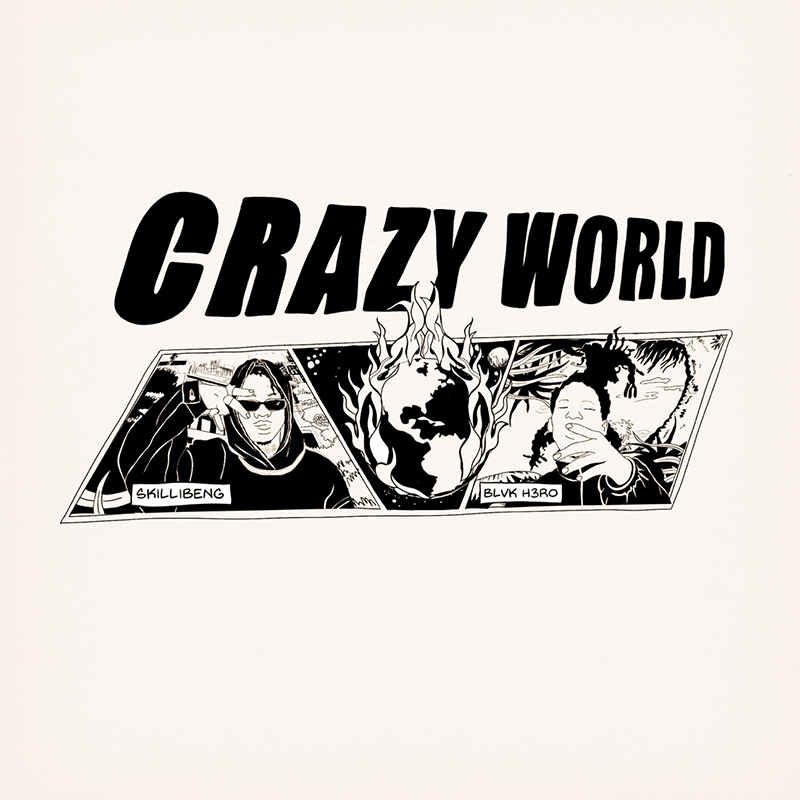
I was listening to the community, my elders – Shaggy had a big part to play in this. We had big conversations about how the sound must be hybrid. Everybody is attempting to blend the sounds but it’s not how I feel it should be. And Shaggy said ‘it needs to be hybrid’ then. I could be big headed and say it was all me – but it wasn’t. It came from years of being a student; being open; being a sponge, but also being stubborn and standing up for myself.
You’ve got some big-name producers on the album.
Soko7 is huge – Beyoncé, Drake. Sonic Gold is on it – he lives in L.A but his father is Jamaican. Kheilstone – he produced Popcaan. Princeton Brown. Bob “Riddim” Bouchard from New Millenium.
There’s also this kid I met on my first tour of Europe, in 2017 - Bastido. He came up to me with his mom when he was 14/15 – and he was a fan and sent me the beat for Drive. And I’ve kept that song until now, and we’ve kept the relationship going. And now he’s actually a dope producer, with lots of monthly listeners. He always tells me he’ll never forget that that was the first time he’s met an artist he looks up to and it helped him grow – and that’s magical.
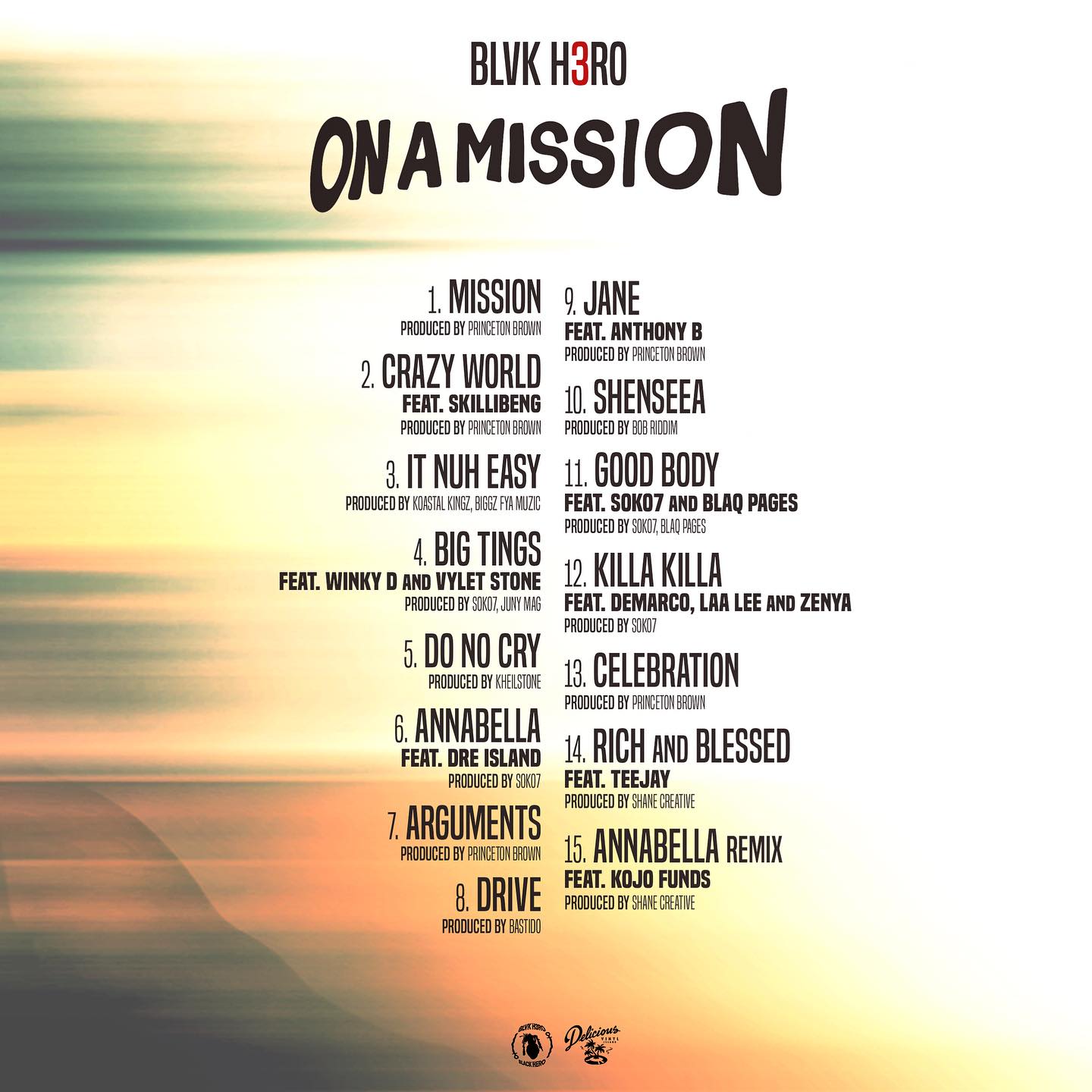
That’s not to say I didn’t try to get the legendary producers – but some people are jaded, just hurt, they just wanna make money. For some people to want to charge me $15,000 just to make a Reggae riddim, before we even start – I feel like you’re trying to tell me no, without telling me no. How do you think I can afford that? A lot of them are just in their own world, they just wanna do their own thing – so I had to go down this road.
It must have given you more creative control, working with a close team?
It does. But it also gave me more energy. If Soko didn’t like a word, and said change that word, I’d listen. Most of the producers on this album are artists, they can write. Those different things really brought out more. So yeah, more control – but more youthful energy, less boundaries, more open-mindedness
One of the tracks that’s blown up is with Winky D – huge Zimbabwean artist, but not well known in the UK. You could take over Zimbabwe with that track!
They’re going crazy for that tune on my Twitter. I’m trying to keep up! We’re definitely going to go there to shoot the video and keep a vibe. Bob Marley went there on their Independence Day. Their whole vibe is Dancehall.
Ghana’s Vylet Stone is excellent on it, too.
It’s crazy how this project brought out the best in everyone. Demarco did his best verse in a long time I think.
You got Skillibeng to SING!
Bro. Bro [laughs]. It’s crazy. And the crazy thing is, he’s on RCA, others are on big labels. But nobody charged me a dime. That opened my brain.
That a real validation of you as an artist.
Even Soko and their price are so like… they can charge $20,000 a session and get their royalties too. They just worked with me. We definitely met them on the negotiation levels, but they were happy to give me a discount. Everybody just felt the mission, innately, without even hearing all the music. Everything lined up perfectly. God was like, ‘OK, you say you want your dreams – you ready? Bro, you better be ready’. It happened. The mere fact we’re talking again – I know something’s changing [laughs]. Immortal Steppa was a change – we talked then - and I know this is a change.
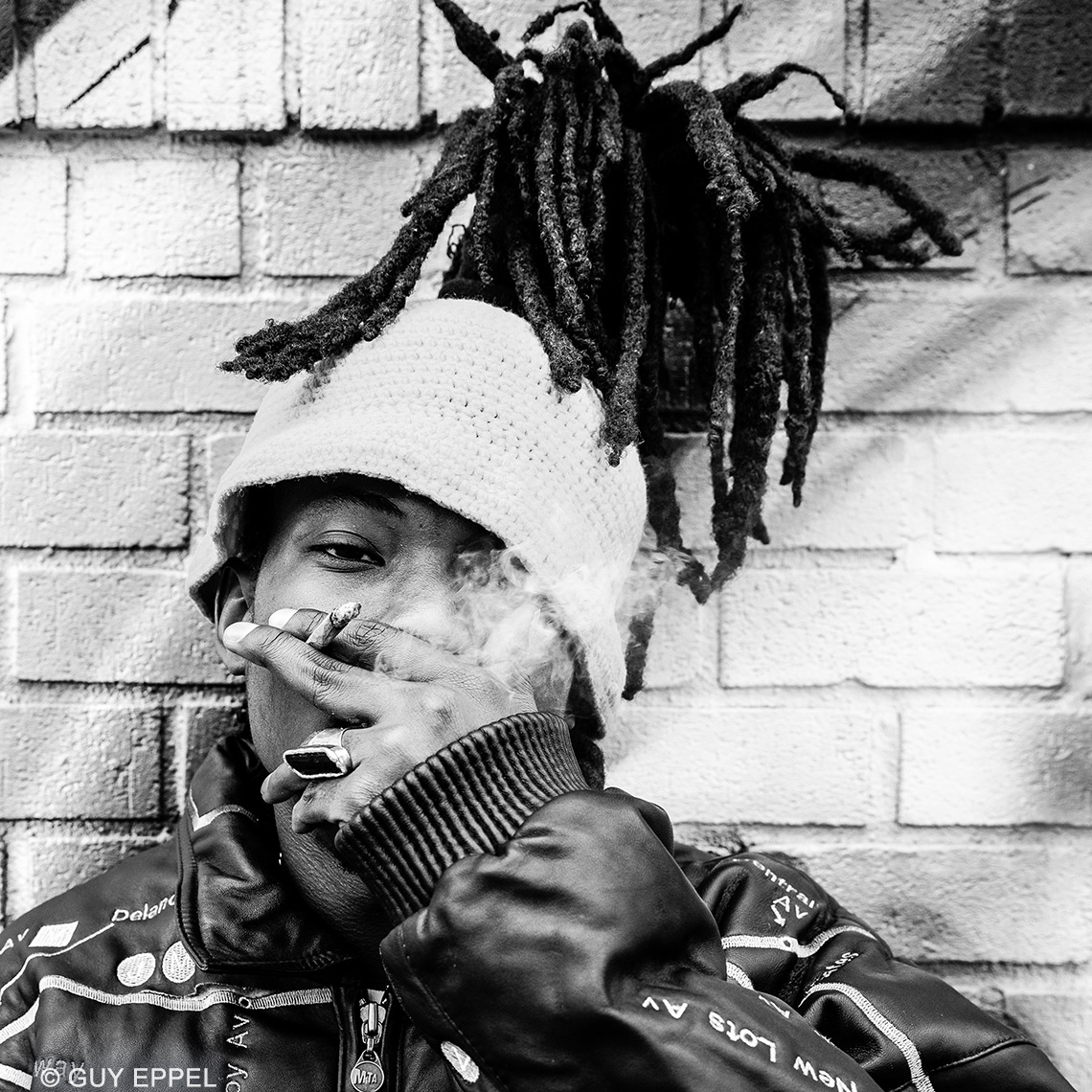
My stand-out track was Drive – I’m a sucker for Neo Soul. Moreover, it gives you as an artist the chance to display your full vocal range, and its beautifully constructed.
That was the one I placed perfectly – the ‘sweet spot’ [laughs]. I know you would have picked that up for sure. That all comes from my love for that music – and to show that sometimes the Reggae box will limit how much you can express. But when you fuse it with similar genres, like Neo Soul, it can bring out new vibes. It’s like, I was thinking, if Bob Marley and Tracy Chapman did a song: the guitar Chapman would do, but with Bob Marley and how he could write something, but it could be about something else. It was a test of my writing – and for you to appreciate that song, I’m so glad it can go that deep and we can have that conversation.
Was it emotional releasing the album, having worked on it for so long? You must have needed some therapy!
[Laughs] Writing the album was the therapy. It really helped me. It healed me. The person you’re speaking to now, if you talked to me a year ago – I wasn’t the same person. I was gonna give upon music.
Why?
I was boxed in, in Jamaica. Imagine you’re putting out art, and to you it’s beautiful music – and you’re being comparted to lower frequencies, and people saying ‘you need to do this’. In the local space, they’re so distracted, they’re so far-removed from what our source really is – they don’t really know what good music is anymore. I’ve had to sit down and hold myself to myself and not go out. I was never a depressed dude – I’m always happy, no matter poverty, whatever. But it started to get me. I was sad to see there were no outlets for people like me.
Kartel is doing 35 years; there’s guns, drugs – people aren’t doing music like me and Runkus. So, it was getting to me. All my efforts of trying to get to Europe weren’t working. People were saying I don’t do Reggae. I felt blacklisted too, as I was talking too much. People have ulterior motives.
Then I came to the US and had a whole different freedom. I felt like a spell or energy just lifted off me, and in one year – all of this we’re talking about, Grammys, UK – all of this happened when I shifted out of Jamaica. It’s good to get the training there, but it seems like a baby: you’ve got to come out of the womb, and then life begins. So, I had to come out of the womb, and make this album here.Everything seems to have shedded, all the old people I used to work with, we’re not so close. Then, a process of growth and healing.
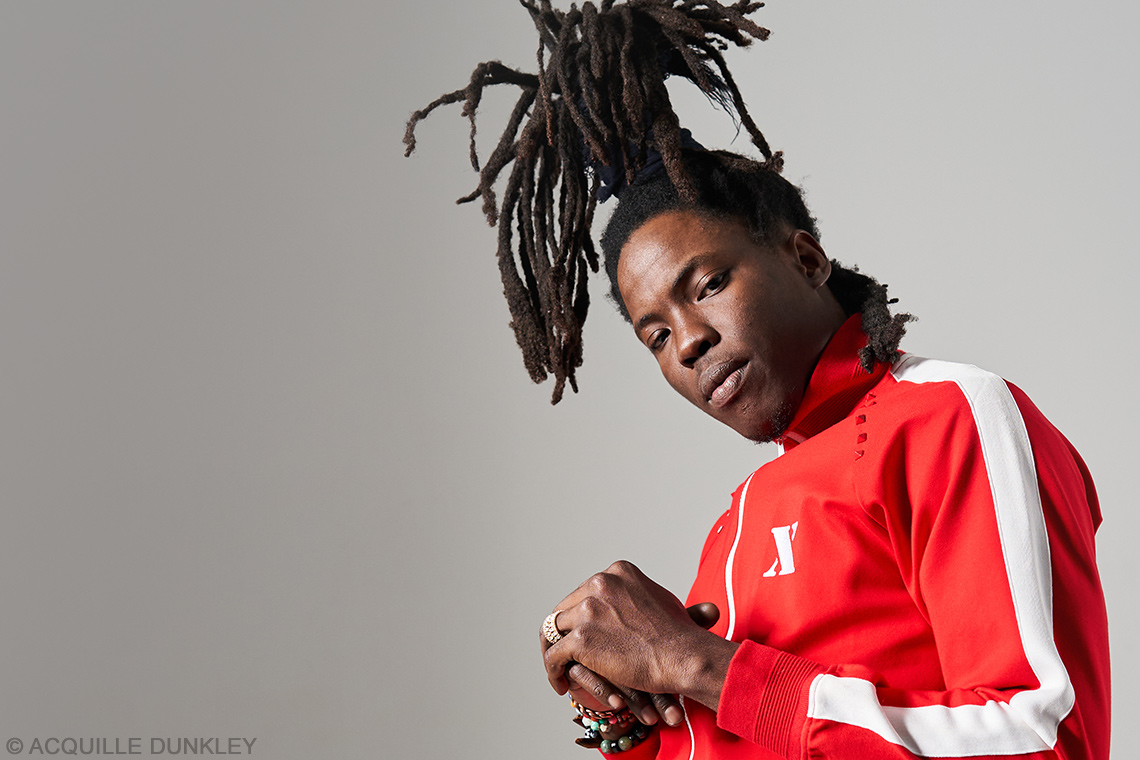
That’s how these songs came out. I came into America with zero dollars – all my savings went into the visa. I came here, me and my friend, and we were sleeping on floors, couches, but it progressively got better. I had to start from scratch, but I feel different now. I’ve healed. I’ve faced it all, the anger I felt towards the naysayers, the things I thought they were saying, the people I thought were against me – now it’s all just love. The day the album was released – all that lifted off me.
I never knew I was so respected in my space; that loved. I always felt like an outsider. So, I feel so good now. I’m constantly teetering between tears and a smile on my face. I could talk to you for hours about this.
I have to ask the question, as I wasn’t expecting what you said, will you go back to Jamaica sometime again?
OK in Jamaica, they have a Heroes’ Day, I’m going to go back and do a Heroes’ Day show in October, and it’s my birthday month. [Laughs] you can’t script this shit, bro! This is not me! My friend called me from Jamaica – he made a lot of things happen for me – and I don’t really want to go back to Jamaica and stay with my parents, as I gave up my house. And I’m saying this to him, and he said he wanted to sort a show for this album. So, he’s covering it. And I feel like everything I need in life – I’m not there financially, I spent everything on this album – but it might be the thing that changes. I want my team to be able to pay their bills, be able to take them over the world. I want to see my manager cry! To see the album come out, and to see her happy – bro. That’s it.
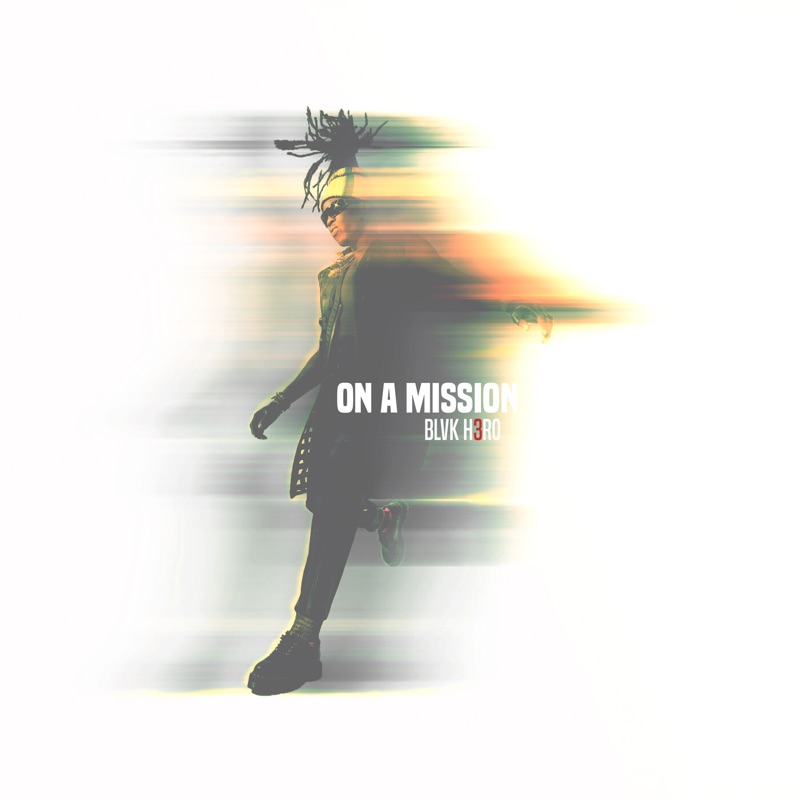
I didn’t realise we’d been talking for over an hour! I need to wrap this up otherwise half the Reggaeville website will be this interview! So, have you got more gigs lined up for the summer?
The next show should be the On A Mission tour, and break it down into segments: Africa, Europe, UK - I’d love to go to Japan. And I’m gonna be working this album for at least a year, to make sure it gets to the people, to be heard. Reggae’s slower – it takes six months, nine months to pick up. Everything takes its time, so I’ve got to be patient. I’m gonna do more in-person content, I’m going to be more engaging with this album.
Finally, you tweeted the other day: “Rakim, Bone Thugs-N-Harmony, and Blvk H3ro”. Is that gonna be a collab on the next album?
[Laughs] I’m working on that now for the deluxe…
No, you’re not!
I am! So, what’s happening is, I can tell you we’re doing this Delicious Vinyl massive bloc party in LA and me, "a special surprise Hip Hop God", and Bone Thugs-N-Harmony are headlining.
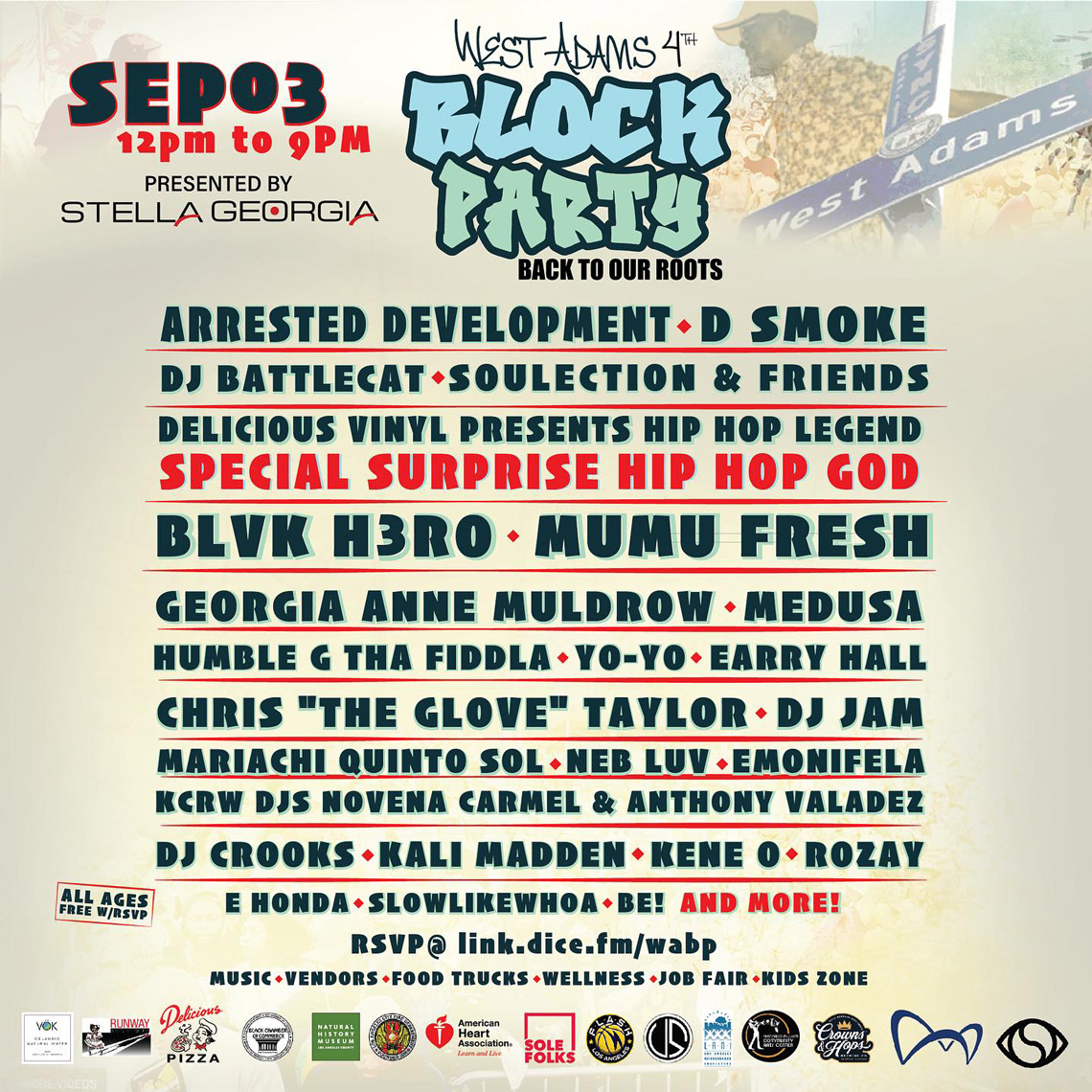 We have to wrap this up otherwise we’ll be here for hours!
We have to wrap this up otherwise we’ll be here for hours!
I love talking to you. You know when they do those big Zane Lowe 60-minute interviews? If I had to pick someone to do that with me, I’d pick you bro. You’re our Zane Lowe.
[Laughs] Thanks so much. Blvk H3ro – thank you for speaking to Reggaeville!
Thank you, man. Big up.




